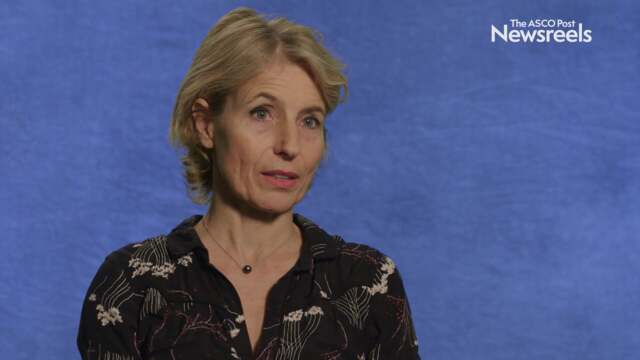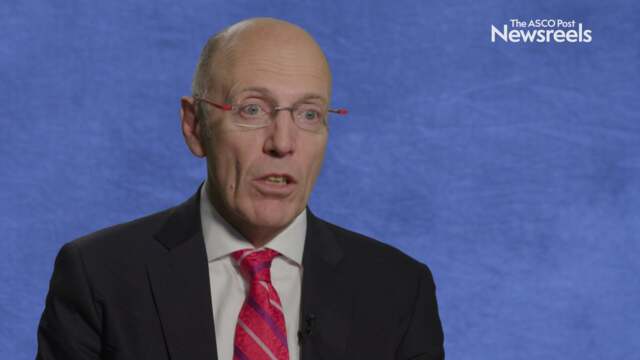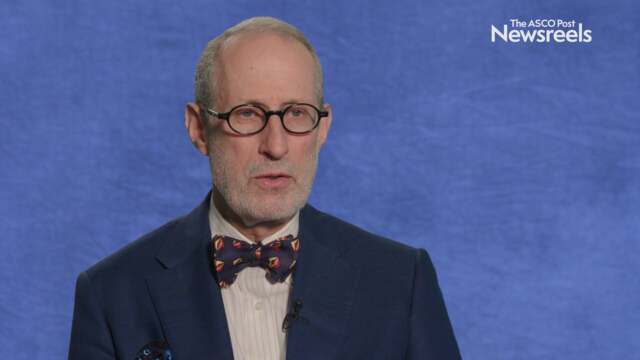Karl Lewis, MD, on Basal Cell Carcinoma: An Ongoing Study
ESMO 2018 Congress
Karl Lewis, MD, of the University of Colorado, discusses a phase II study of cemiplimab in patients with advanced basal cell carcinoma who experienced progression of disease on, or were intolerant of, prior hedgehog pathway inhibitor therapy.
For more information about this ongoing trial, visit clinicaltrials.gov
ClinicalTrials.gov ID: NCT03132636
Caroline Robert, MD, PhD, of Gustave Roussy Cancer Centre, discusses managing toxicities of immunotherapy, including neurotoxicity, and treating beyond acute adverse events.
Matti S. Aapro, MD, of the Genolier Cancer Centre, discusses the optimal treatment and supportive care for older patients with cancer, including the importance of maintaining dose density and intensity as well as monitoring toxicity.
Nicholas D. James, PhD, MBBS, of University Hospitals Birmingham NHS Trust, discusses study findings on treating metastatic castration-sensitive prostate cancer, including results on radiotherapy and abiraterone (Abstract LBA5_PR).
Jeffrey S. Weber, MD, PhD, of the NYU Langone Perlmutter Cancer Center, discusses how long people with melanoma should be treated with PD-1 blockade and the data on remission rates.
Suresh S. Ramalingam, MD, of the Emory University School of Medicine, summarizes the top-line lung cancer results reported at this year’s ESMO Congress, including the role of targeted treatment for early stage NSCLC, combining immunotherapy for surgically resectable disease, and immunotherapy for small–cell lung cancer as well as unresectable NSCLC.





